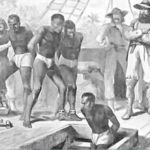There is still much for medical experts to learn about COVID-19 and its challenges. In this interview by SADE OGUNTOLA, director-general, Nigerian Institute of Medical Research (NIMR), Lagos, Professor Babatunde Salako, speaks on what the institution is doing in its fight against the pandemic. Excerpts:
THE use of chloroquine in the treatment of COVID19 is beingtalked about by many people. What is your medical research institute doing about it?
There are a number of studies from China that have looked at the effectiveness of chloroquine on COVID-19 infection, in terms of patient recovery and its complications like pneumonia. Chloroquine has been shown to be effective in a way in relation to recovery from the disease and the reduction in the development of some of its complications. In fact, recently, its use for COVID-!9 treatment was talked about in America.
Since this has become public knowledge, and a lot of people may want to begin to use it without guidance in Nigeria, At NIMR, we thought that we should use that opportunity to look at chloroquine in our own patients too and be able to offer advice to help health workers on its use in COVID-19 infection.
We will also be looking at the use of chloroquine in the prevention of this infection, especially among contacts and possibly healthcare workers.
Whatever information we come up with will be written as brief for the government to the medical community on whether they should use chloroquine or not.
NIMR is doing this in conjunction with the Lagos State government. Already, we are finalising the protocol adapted from the World Health Organisation guidelines for clinical trials and in the next few weeks, we should start.
There are barriers to the detection of COVID-19 contact cases, even as knowledge and practice and attitude on COVID-19 infections remain low. Will you also be considering this as part of your research activity?
Now that everybody is scared about the disease and there is a lot of rumours here and there, we are currently working out an idea to assess the public knowledge of COVID 19 in Nigeria and people’s response to the news of COVID 19 and what they think should be done.
It is to provide an insight into how the community is reacting to the disease. We will then be able to tackle whatever insinuations that come from the Nigerian community.
As to barriers to case detection, we want to know the attitude of the people and how those who do not have the infection are responding to its news. If we have information on those barriers, we will then look at how to overcome them. The majority, I believe, will have to do with the education of the community.
On your twitter handle, you said NIMR will commence COVID-19 testing for interested individuals. How far have you gone with this arrangement?
One of the laboratories in NIMR is a diagnostic laboratory that is recognised by Nigeria Centre for Disease Control. Lots of people have had to call that they want to have the test done privately. We believe that those who have concerns for testing should be given the opportunity to get tested.
So, we have opened up a free testing centre; people can drive in and out to have the test done. There are categories of people that we want to offer free testing. They are quite a number. These are people who have come in contact with a confirmed COVID-19 case or who have recently come from high-risk countries but who do not want to go to the other laboratories in the isolation area and experiencing symptoms that are related to the virus.
But many of them are not assessing testing, so we want to provide that opportunity for them. If the model is successful, we can expand it to other places.
However, they cannot come directly to us. They have to fill a form on our web portal, and based on that form, we will determine who really meets the criteria to be tested and such will be invited. So, those coming will be given appointment online. Results will be sent through mails while any confirmed case will be reported to NCDC.
For a start, we will be screening only 25 people in order not to overwhelm our laboratory technicians, and the result will take 24 hours. But as time goes by, we may increase the number of people depending on how things turn around.
We do not have the capacity or money to test everybody and we have few kits for testing. If the model is successful, we can expand it to other places, where they want to provide a similar intervention.
As a research institute, are you working on designing a local test kit for COVID 19?
We are already at that; we are between 35 to 50 per cent completion rate of a local test kit for COVID-19. We would have been further than this but for a piece of equipment that we need to get from abroad to help optimise our design.
We are relating to a foreign country, even in this situation of a ban on international travels and lock-down in many states in the country. If we get that equipment, we will be able to design any kit for any disease outbreak.
Any individual or group that wants to help really doesn’t need to bring the money; they can pay the vendor for the equipment we would not mind.
How do you rate NIMR facilities for the research required for confronting COVID- 19 in Nigeria, particularly now?
If we had sufficient facilities, we would not be talking about equipment that we need to produce a COVID-19 test kit. We cannot go beyond a certain level because we do not totally have what is required.
But if it is about equipment for diagnosis, we have foreign-manufactured test kits that we can use for diagnosis.
Also, we can sequence the gene of the virus. We have involved in the sequencing of the index case that came into Nigeria. It was confirmed that what the man actually had was COVID-19 infection, which is related to the one that was diagnosed in Wuhan in China.
In addition, we also have the capacity to conduct research, which is one of our core mandates as an institution but certainly not in the area of vaccine development. We are not there yet.






